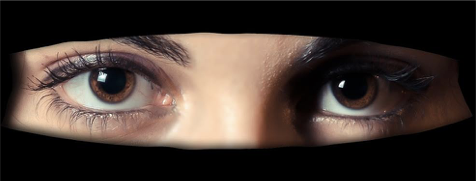Get more knowledge about radicalization
IRadicalization can be a difficult subject to talk about and for many it can be hard to assess whether the concern for a relative is about an initial radicalization process or if something else is all about it.
On this page you can read more about what it means to be or to be radicalized, and to get more knowledge about which signals you need to be aware of. We also provide you with information about how we work and what we think you can do to prevent radicalization.
Remember that you can always contact us by phone or chat if you need support, want more information or just need someone to talk to HERE.

Our advice is free, 100 per cent. anonymous and completely independent of authorities. Go to our contact page HERE
What does radicalization mean?
It can be hard to understand what radicalization is and what it’s about, but an official and broad definition of it sounds like:
Radicalization refers to a shorter or longer-term process in which a person increasingly adopts or accepts extremist views or legitimizes his actions after extremist ideology using undemocratic or violent means in an attempt to achieve a particular political or ideological goal.
To learn more about radicalization and anti-radicalization, go further down the page here. There we will try to help you understand the process that young people undergo when they undergo a radicalization process.
The word and importance of radicalization are often also associated with other concepts such as “extremism”. What extremism is about and how it differs from radicalization, you can read more about below.
It can be hard to understand what radicalization is and what it’s about, but an official and broad definition of it sounds like:
Radicalization refers to a shorter or longer-term process in which a person increasingly adopts or accepts extremist views or legitimizes his actions after extremist ideology using undemocratic or violent means in an attempt to achieve a particular political or ideological goal.
How do they develop extreme attitudes?
Extreme attitudes towards other people can occur on the basis of many relationships. Sometimes they may arise because you have bad experiences with certain situations where you have felt unfairly treated by a person or group that you can identify from a particular nationality, religion or culture.
Other times, you do not even have to be treated unfairly, but you may be able to identify with a group that you feel unjustly treated by others.
As a consequence, there may be a desire to defend themselves or help the perpetrators by “giving up” in response to the unfair treatment. Unfortunately, these kinds of thought patterns can help to legitimize undemocratic or violent acts.
Finally, it can simply be that there is a strong disagreement with others when it comes to questions about social structure, religion, ethics and morals. This can lead to extreme and negative thoughts about the people that disagree with.
The young people lack an identity and a community
Experience shows that young people are looking for unhealthy communities because they feel divorced as to who they are and they lack a place where they feel they belong. They often lack a place where they can be part of a community and feel welcome.
Earlier radicalized young people say that during the period up to radicalization they felt vulnerable and lacked an identity that gives them a justification and meaning with their lives. At the same time, many of them experience a resistance from the surrounding community. This confirms them in the belief that it is not possible to enter into the community’s established community. As a result, they seek the recognition in unhealthy and undemocratic communities.
For the young ones, however, it may be hard to see that there is radicalization. The young people in the radicalized environments may feel that life suddenly gives more meaning and that they are part of something bigger. Therefore, it is important that people around them are aware of them and make sure they help them in time. Here, the relatives play a crucial role in interaction with us as professional professionals.
Further down, you can read more about the different signs and behaviors you need to be aware of if you are worried about a young person or person who is near you.
You can also contact us HERE if you need to talk more about feeling that you or one of your relhttp://www.amal.dk/en/contact-2/atives lacks an identity or feel divorced.
The influence of the media on radicalized youth
In the modern world, our access to media has a big influence on how we perceive the society and the world in which we live. We live in a world where the media image is characterized by wars, unrest and conflicts, and often there are different angles as to why conflicts arise.

The West – including a country like Denmark – has participated in wars and conflicts in the Middle East for several years, and the media’s stories about this can affect young people. The coverage of the media particularly affects the young people who already have some form of resistance to Danish society. In addition, news about war and destruction can help create anger and perhaps fear that such events may hit one’s own or one’s family.
In particular, social media can provide access to information for the young people, and it is seen that extremist groups use social media to create negative attitudes towards democratic societies – often on untrue basis. In worst cases, extreme social media groups can “seduce” the young people to regard their own compatriots or other like-minded enemies, and extremists can encourage young people to act violently and undemocratic disagreements.
Where do the young people become radicalized?
The radicalization process can start in many different places. This can be done either in the local residential area, via websites or social media, close to or in the local mosque, at school or through cross-border family networks. It depends on the individual’s situation and which part of the country we are in. However, we know that the physical encounter with radicalized environments is an essential part of convincing the young people and putting them on the wrong side.
The physical meetings often take place in closed local communities around the country. In these areas there is a certain logic, and as many young people have large parts of their lives and networks in the local area, they are more likely to indoctrine with values that are in opposition to the Danish democratic society.
Local authorities and local communities in these years are more aware of the problems associated with radicalization, where young people are tempted by radicalized environments. When this kind of network is formed, it has great influence and consequences for local communities. The municipality’s school leaders, social educators and relatives usually do not know how to solve the social issues that they perceive at the closest teams every day. It is a big problem for the individual, their relatives and for society in general.
If you want to hear more about the consequences of radicalization for the individual, the family and society in general, you can book us for a free lecture in your local area. See more here.
7 Typical signs of radicalizationample Title
It may be very difficult to put an end to their concern, for example, if you feel fear that a family member or close friend has been radicalized or is about to become. Just because one’s brother, daughter, sister or friend begins to become more religiously oriented or changing their habits or behaviors, it is far from always a sign that they are on the way to being radicalized.
Therefore, we have compiled a list of seven characters to be aware of as the MESSAGE can be a signal that they need help.
You must be aware if the young person:
Feeling lonely or isolating from the community in everyday life
Begins talking about lack of faith in the future and resistance to society
Changes his style of clothing, rhetoric and attitudes significantly
Establishes a new network and excludes from its old network
Expressing a square view of the world, painting enemy pictures or talking about conspiracy theories
Flirting with criminal activities and people
Begins to talk a lot about religion and political conviction that is in opposition to society
How to prevent radicalization
It is a key element in the fight against radicalization to create cohesion in society so that everyone joins the community. This implies that civil society in the youth community is mobilized together with public systems.
In Amal Hayat, we have experience in creating a safe and trustworthy course with the young people and their relatives. We offer a free space of counseling and support, where young people and relatives get the tools to handle the challenge of securing a better future. We do this by providing an alternative to radicalized environments. We always take the starting point of where the young and his family are. There are never two situations or events that are the same, and we make sure we always take into account. In this way, it is possible to create a development that leads to a safe everyday life, where both the young and the relatives have a better future.
It often requires professional help to become aware of what to do as relatives of a young person who is either becoming radicalized or who has already become. There are things you can do like relatives, but it’s always dependent on the situation, what’s right.
We already help many families, social educators, schools and other parts of the local communities by advising on that kind. As an independent advisory center and local civil society actor, we have a different approach to anti-radicalization work.
Because of our unique position, we have easier to create a trustworthy contact with radicalized youngsters and their relatives. At the same time, we can more easily involve the young people in local communities in the community.
Contact us HERE and allow us to help you and your relatives. The help is free and completely anonymous.

